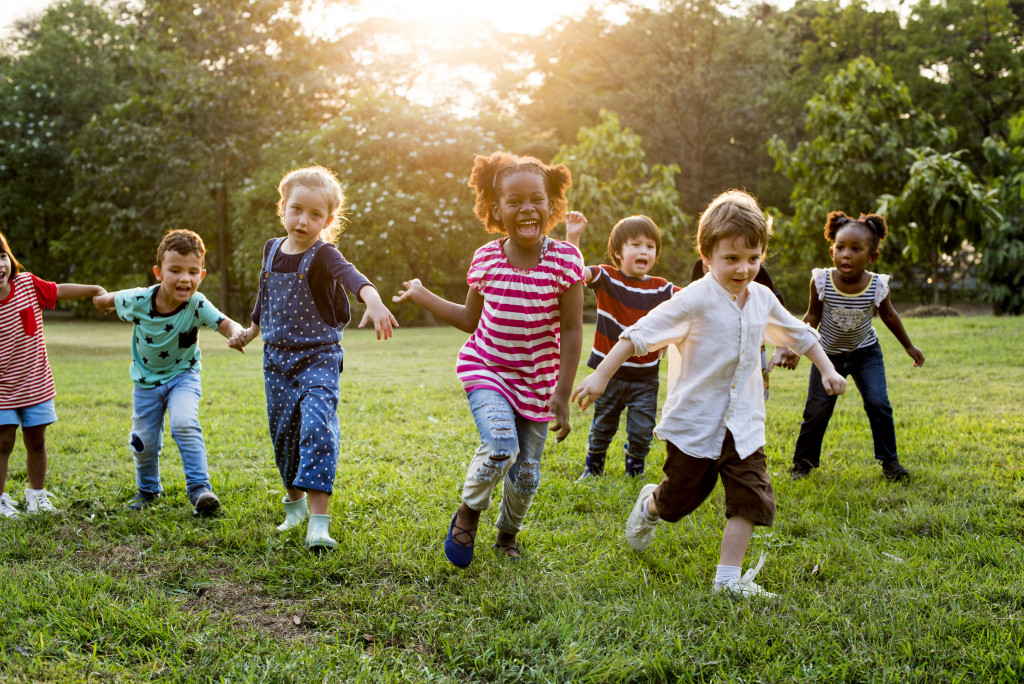- Education goes beyond academics, nurturing creativity and critical thinking while cultivating a love for lifelong learning.
- Extracurricular activities enhance skills outside the classroom, fostering leadership, teamwork, and decision-making abilities.
- Socialization, through various venues like trampoline parks, teaches children empathy, healthy relationship formation, and societal roles.
- Understanding various religions can instill values, foster tolerance, and nurture spiritual growth in children.
Education is the cornerstone of a child’s development, shaping their future and paving the way for success. It extends beyond academic learning, crucial in enhancing a child’s cognitive, social, and emotional growth.
According to data from the National Education Association, children who receive early education are 44% more likely to graduate high school. Furthermore, the World Bank states that for each year of schooling, an individual’s earnings increase by an average of 10%, underscoring the economic value of education.
These statistics clearly illustrate that the benefits of education for kids are far-reaching, positively impacting their personal life, future career, and society. However, education is not just all about textbooks and memorization. It also involves nurturing their creativity, critical thinking, and problem-solving skills and cultivating a lifelong love of learning. As a result, parents must also engage kids with education beyond academics to help them maximize their potential.
Here are a few tips for parents to help their children receive a well-rounded education:
Extracurricular Activities

Extracurricular activities play a pivotal role in a child’s development by fostering various skills and capabilities outside the conventional classroom setting. They nurture creativity, improve social skills, and boost self-esteem. Activities such as sports, arts, and clubs can develop leadership, teamwork, and decision-making abilities, which are fundamental for life beyond the academic realm.
Variety of Activities
Offer various activities to ensure your child has opportunities to explore different interests. From team sports and music classes to coding clubs and nature walks, diverse activities can cater to their unique inclinations and talents, encouraging them to step out of their comfort zones and discover new passions.
Regular Participation
Regular participation in chosen activities helps children foster a sense of commitment. It teaches them time management, consistency, and the importance of dedicating time to their interests. Help them create a schedule that balances schoolwork, activities, and rest, ensuring their overall well-being.
Support and Encouragement
Providing support and encouragement is crucial for children as they explore these activities. Celebrate their accomplishments, big or small, and guide them through challenges. Your motivation can boost their confidence, helping them persevere, learn from mistakes, and ultimately, enjoy their journey of exploration and growth.
Socialization
Socialization is essential to children’s education as it helps them understand how to behave in different social situations, develop empathy, form healthy relationships, and respect diversity. It is the process through which children cultivate their identities while learning about their societal roles.
While school provides a structured environment for socialization, children also need other venues to interact with peers in different contexts. For example, local community events, hobby clubs, and playgrounds can serve as platforms for interaction.
One such exciting venue is the indoor trampoline park, which offers a perfect blend of physical exercise, fun, and social interaction. Indoor trampoline park sessions help children improve their coordination and balance and encourage interaction with other children, facilitating the development of social skills in a fun and relaxed environment. Children can learn about teamwork, cooperation, and communication while enjoying various trampoline-related activities here. The park is a unique educational setting where learning is seamlessly integrated with play.
Religion

Religion plays a significant role in the holistic development of children. It instills values, provides a sense of identity and belonging, and imparts a broader understanding of the world. Learning about different religions can foster tolerance, empathy, and respect for diversity, enabling children to contribute positively to an increasingly globalized society. Here are some areas of priority when teaching kids about religion:
Understanding Basic Beliefs and Practices
Start with teaching children about the fundamental beliefs and practices of various religions. This can include understanding the core principles, rituals, festivals, and significant historical figures. This foundation allows children to appreciate the role of faith in people’s lives and opens doors for further exploration and understanding.
Encouraging Respect and Empathy
Promote respect and empathy for all religions. Children should be encouraged to value religious diversity and recognize the common threads that unite people across different faiths. This attitude fosters inclusivity and can help counter prejudices and stereotypes.
Nurturing Spiritual Growth
Nurturing spiritual growth in children helps them develop a sense of purpose and perspective. Spirituality can provide comfort, guide moral and ethical decisions, and cultivate compassion, gratitude, and mindfulness. Encourage children to reflect on their beliefs and feelings in a supportive, non-judgmental environment.
Final Thoughts
Education is essential for the successful development of children. It should extend beyond textbooks and academic learning, encompassing various activities to foster their physical, emotional, mental, and spiritual capabilities. Parents can equip kids with these skills by allowing them to explore diverse activities that cultivate creativity, critical thinking, socialization, and spirituality. With such an approach to education, children can become well-rounded individuals with the skills needed to build successful and meaningful lives.
